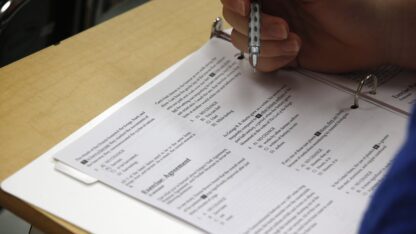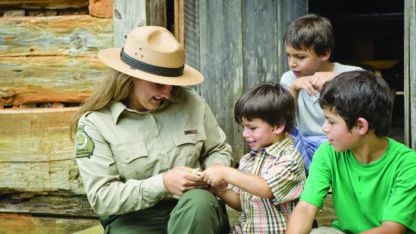College Officials Rethink Approach to Remediation
Educators, business leaders, and lawmakers say students should leave high school “college and career ready”. But in 2011, 20% of Georgia’s college freshmen were not ready. They had to take remedial classes or Learning Support. Officials are now trying to reduce the need for Learning Support and help those students catch up faster.
Listen to the broadcast version of this story.
Officials say remediation costs students time and money. Students pay for classes, but don’t earn credit. That’s one reason why the University System of Georgia is piloting what’s called a co-requisite remediation model. Executive Vice Chancellor for Academic Affairs Houston Davis says students take credit-bearing courses, and get extra support.

“One way to think about it: it’s almost like a lab requirement that the students are expected to do in addition to the regular course requirements,” Davis says. “They have perhaps another hour worth of tutorial and academic support that is required.”
Officials also put a limit on the number of remedial classes a student can take. Those who qualify in more than two subjects can’t enroll because their chance of graduating is small.
“By making the change three years ago and limiting admission to those students who have the most significant academic preparation challenges, we certainly have seen an uptick in the number of students that are able to complete whatever battery of learning support,” Davis says.
Peter Gareis teaches Learning Support and standard English classes at Middle Georgia State College in Cochran. He repeats exercises more often in Learning Support classes, but says the content isn’t drastically different.
“The vat of knowledge I have where it deals with grammar, composition, and structure that I’ll be talking about in English 99, 1101, and 1102, I’ll be coming at it from various levels, but it’s very much the same vat of information you draw from,” he says. “It’s like a big bowl of soup.”
Officials would like to reduce the need for Learning Support. They hope the co-requisite model will help by allowing students to move into college-level courses faster. Davis says colleges are also building partnerships with K-12 schools to ensure students graduate prepared.
This report is part of American Graduate: Let’s Make it Happen, a public media initiative supported by the Corporation for Public Broadcasting to help more kids stay on the path to graduation.
9(MDAxODM0MDY4MDEyMTY4NDA3MzI3YjkzMw004))








